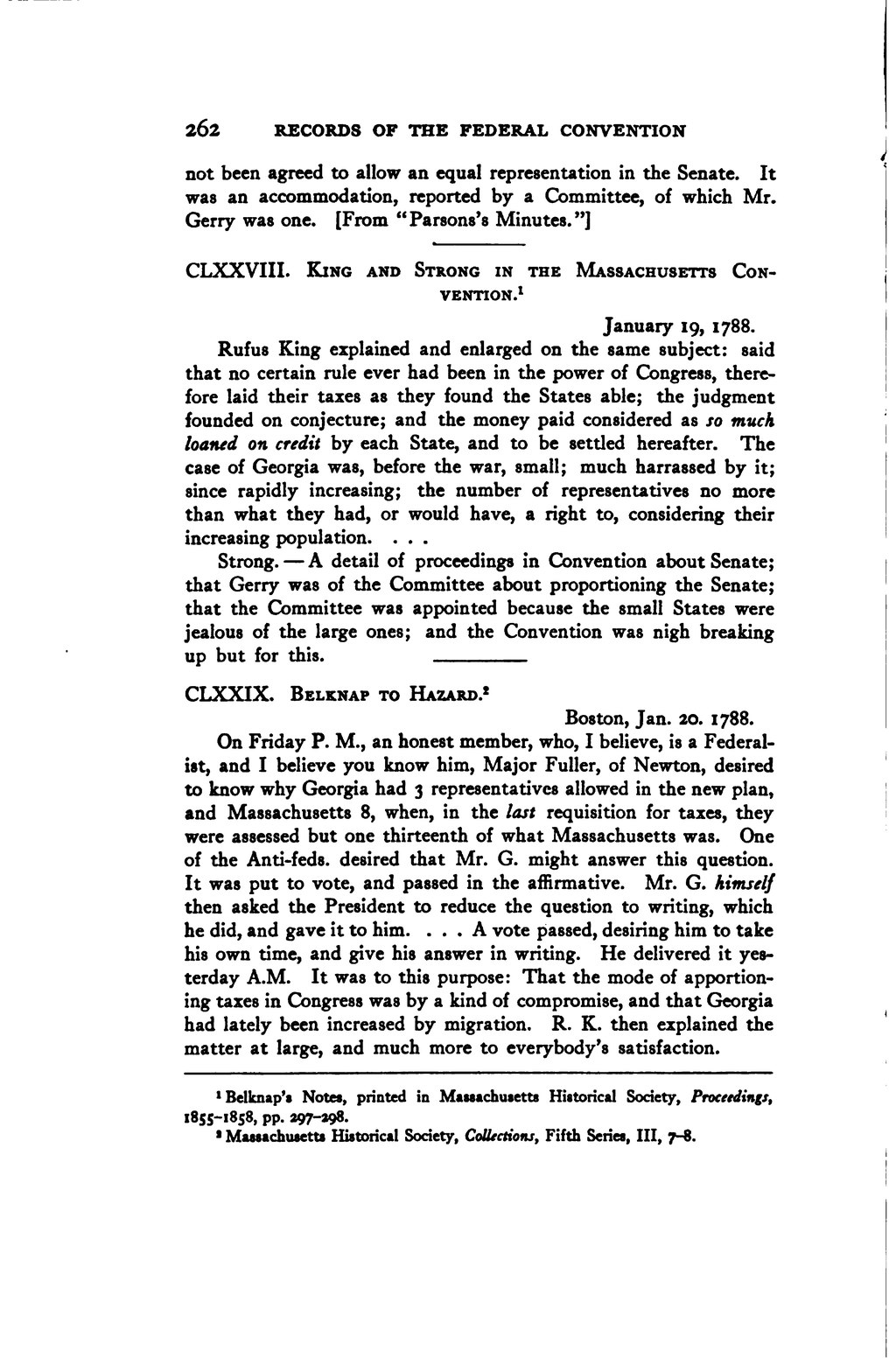not been agreed to allow an equal representation in the Senate. It was an accommodation, reported by a Committee, of which Mr. Gerry was one. [From “Parsons’s Minutes.”]
ⅭⅬⅩⅩⅧ. King and Strong in the Massachusetts Convention.[1]
January 19, 1788.
Rufus King explained and enlarged on the same subject: said that no certain rule ever had been in the power of Congress, therefore laid their taxes as they found the States able; the judgment founded on conjecture; and the money paid considered as so much loaned on credit by each State, and to be settled hereafter. The case of Georgia was, before the war, small; much harrassed by it; since rapidly increasing; the number of representatives no more than what they had, or would have, a right to, considering their increasing population.…
Strong.—A detail of proceedings in Convention about Senate; that Gerry was of the Committee about proportioning the Senate; that the Committee was appointed because the small States were jealous of the large ones; and the Convention was nigh breaking up but for this.
ⅭⅬⅩⅩⅨ. Belknap to Hazard.[2]
Boston, Jan. 20. 1788.
On Friday P.M., an honest member, who, I believe, is a Federalist, and I believe you know him, Major Fuller, of Newton, desired to know why Georgia had 3 representatives allowed in the new plan, and Massachusetts 8, when, in the last requisition for taxes, they were assessed but one thirteenth of what Massachusetts was. One of the Anti-feds. desired that Mr. G. might answer this question. It was put to vote, and passed in the affirmative. Mr. G. himself then asked the President to reduce the question to writing, which he did, and gave it to him.… A vote passed, desiring him to take his own time, and give his answer in writing. He delivered it yesterday A.M. It was to this purpose: That the mode of apportioning taxes in Congress was by a kind of compromise, and that Georgia had lately been increased by migration. R.K. then explained the matter at large, and much more to everybody’s satisfaction.
